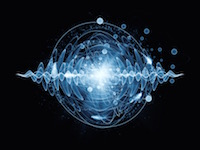- Speaker: Prof. Tsang, Betty (The National Superconducting Cyclotron Lab, USA)
- Date: Tuesday March 17, 2015
From the collisions of nuclei, we can create environments that resemble the first moments of the universe after the big bang. Properties of extra-terrestrial objects such as neutron stars can be obtained from studying collisions of a variety of nuclei with different compositions of protons and neutrons. One important research area of current interest is the density dependence of the symmetry energy, which governs the stability as well as other properties of neutron stars. Symmetry energy also determines the degree of stability in nuclei. I will first introduce NSCL at Michigan State University (MSU) that has been the flagship user facility for rare isotope research in US, and our research program related to the symmetry energy.
